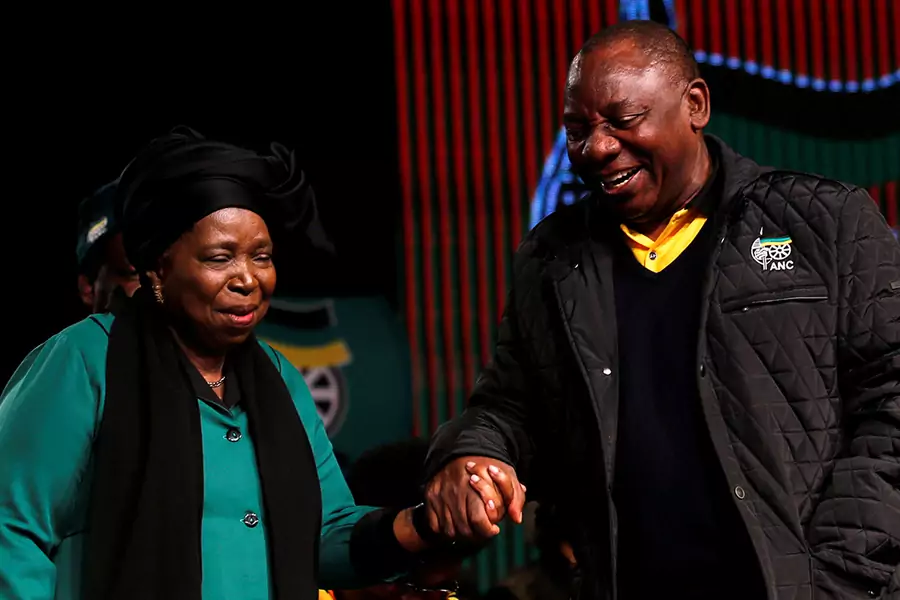Scene Setter for Pivotal ANC Party Conference in South Africa

The governing African National Congress (ANC) will hold its elective conference from December 16 to December 20 in Johannesburg. The conference meets every five years to choose a party leader and other senior officials. So long as the ANC has a majority, parliament is all but certain to elect the party leader to the South African presidency in 2019. (Voters vote for a party, not individual candidates, and then newly elected members of parliament elect the president.) Hence party leader Jacob Zuma is also the president of South Africa. Under the ambiguous ANC rules, he is probably ineligible to run for the party leadership at this elective conference; even if he could, he is so discredited by personal scandal that it is unlikely he could get enough votes. However, should his preferred candidate for party leader, his former wife Nkosanza Dlamini-Zuma, win the race, he might finish out his term as state president. Conversely, if current vice president Cyril Ramaphosa were to win the leadership race, the ANC might recall Zuma from the presidency before his term is up, as it did when Thabo Mbeki lost the party leadership in 2008 before his term as state president ended.
Much media commentary represents the leadership contest as a two-horse race between Dlamini-Zuma and Ramaphosa, who each head slates of candidates for other offices. Many in the ANC, however, are uncomfortable with slates that correspond to a certain party faction, and there are calls for "party unity." This would involve the election of candidates from the two slates as well as others not necessarily on a slate, creating a party leadership that is not binary by allowing many combinations and permutations.
More on:
The draft program of the conference (which is not necessarily final) provides for nominations of candidates for the party's president, secretary general, chairperson, and treasurer on December 16. Voting will follow, and results are scheduled to be announced on the evening of December 17.
Nominations for deputy president and deputy secretary general would open on December 17, followed by voting, and the results would be announced on December 18. Nominations and voting would thus take place after results are known from the first four contests. Under this scenario, the losers of the first round of voting could be accommodated in the second.
Nevertheless, it seems increasingly unlikely that Dlamini-Zuma and Ramaphosa, and their respective slates, would benefit from the winner-take-all practice of previous conferences. Ramaphosa has more pledged delegates than Dlamini-Zuma, but voting is secret so there is ample room for horse trading. Further, President Zuma has a formidable patronage/clientage network and in a political climate rife with corruption charges, “he knows where the bodies are buried.” A deal between Ramaphosa and Dlamini-Zuma would be attractive to many in the party. The most likely outcome, in my opinion, is that Ramaphosa will emerge as party leader and Dlamini-Zuma will become his deputy.
The ANC is bitterly divided, though more over personality and style than policies. It has been sloppy in its procedures for delegate selection. Should a faction wish to derail the conference, it could do so by challenging the credentials of delegates. Similarly, if the party remains divided over the leadership question, the loser—either Ramaphosa, Dlamini-Zuma, or some other figure—could challenge the convention’s choice in the courts. Should the convention become derailed or its choice for party leader be challenged successfully in the courts, the ANC’s partners, the South African Communist Party (SACP) and the Congress of South African Trade Unions (COSATU), might well withdraw from the Tripartite Alliance and set off on their own. The ANC itself might split. Many within the ANC are working to prevent such a scenario, and they are more likely to succeed than not. But, these are perilous time for the cause of ANC party unity.
More on:
 Online Store
Online Store